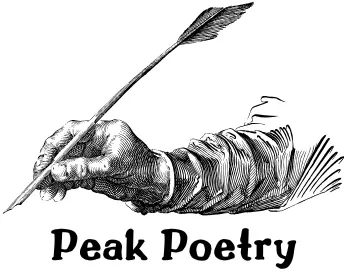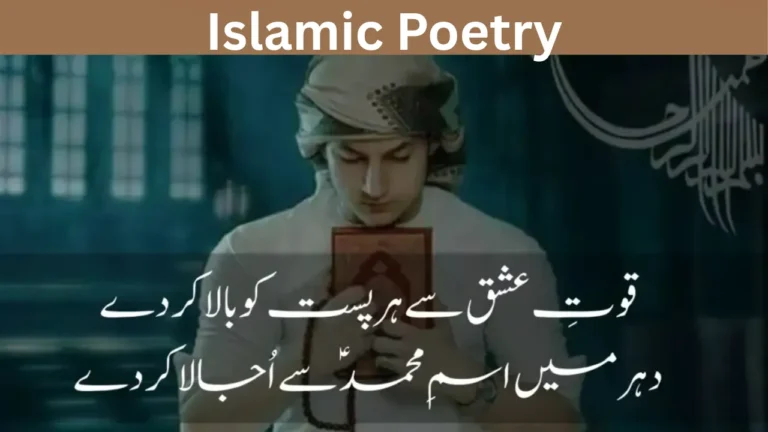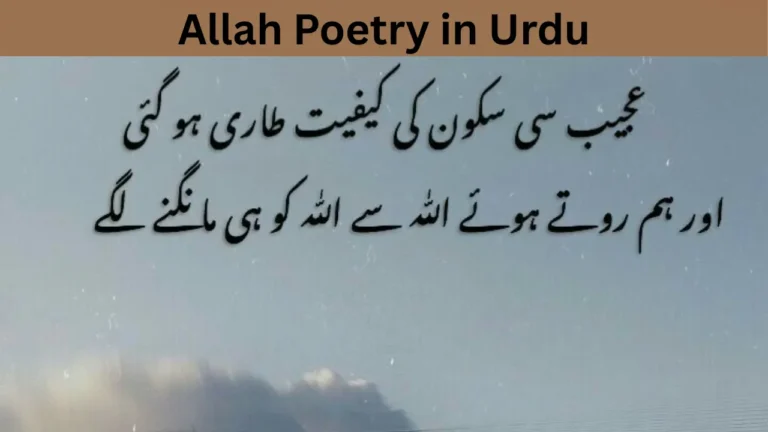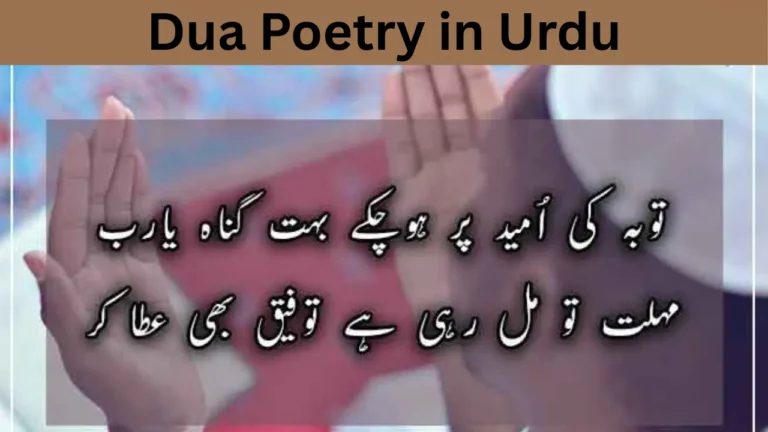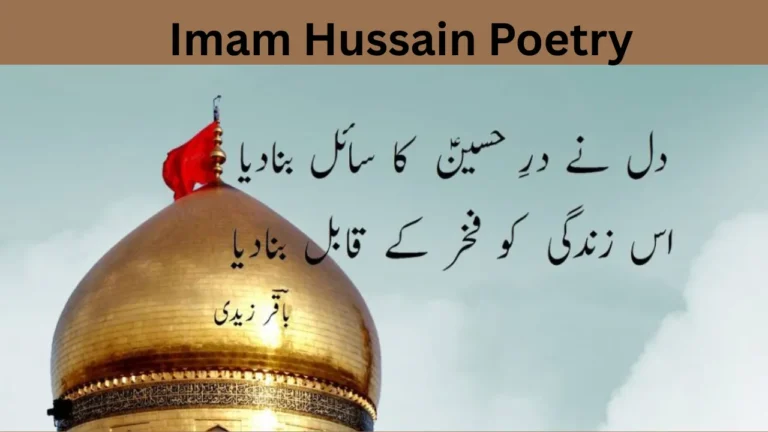Ramadan Poetry: A Spiritual Journey in Verses
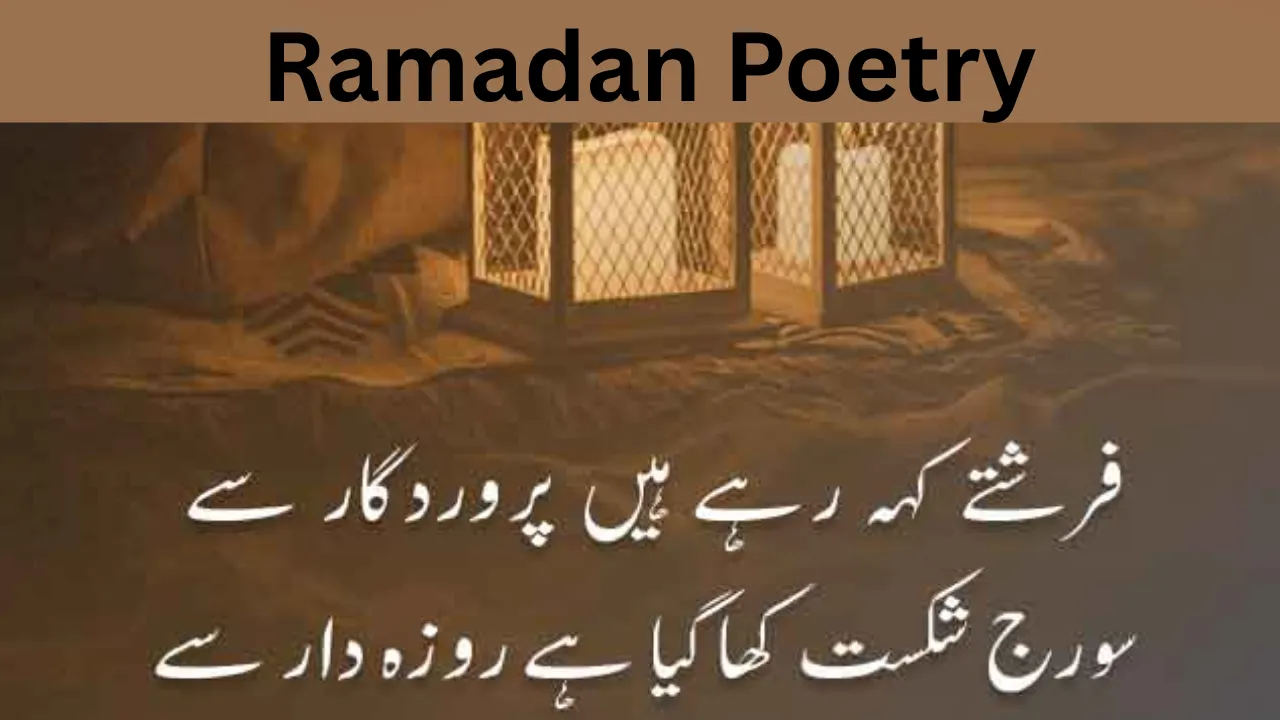
Ramadan is a month full of devotion, fasting, and inner reflection. People around the world find peace and purpose during this sacred time. One special way to express these feelings is through Ramadan poetry. These poems capture the soul of Ramadan in beautiful and meaningful words.
Poetry adds emotion to faith. It helps us reflect on our purpose and connect with Allah. Ramadan poetry is more than just words—it is a spiritual experience.
Read more: peakpoetry.com
What Is Ramadan Poetry?
Ramadan poetry is a form of verse that celebrates the holy month of Ramadan. It speaks about fasting, prayer, blessings, and spiritual growth. Muslims across the world write or share such poetry to express their love for Islam and the joy of Ramadan.
This poetry often comes from the heart. It uses simple yet powerful language. Many times, people write it in English, Urdu, Arabic, or other local languages.
Read more: Sad Poetry in English: Understanding Emotions Through Words
Why Ramadan Poetry Is Important
Ramadan poetry helps us put our feelings into words. It offers comfort during long fasts and lifts the heart during prayer. For many, it’s a way to reflect on their actions and turn toward Allah.
It also brings people together. Families share poems at iftar. Children recite verses in school. Mosques hold gatherings where poetry is read aloud. Through poetry, the spirit of Ramadan spreads love and unity.
Read more: English Poetry 2 Lines: Small Verses with Deep Emotions
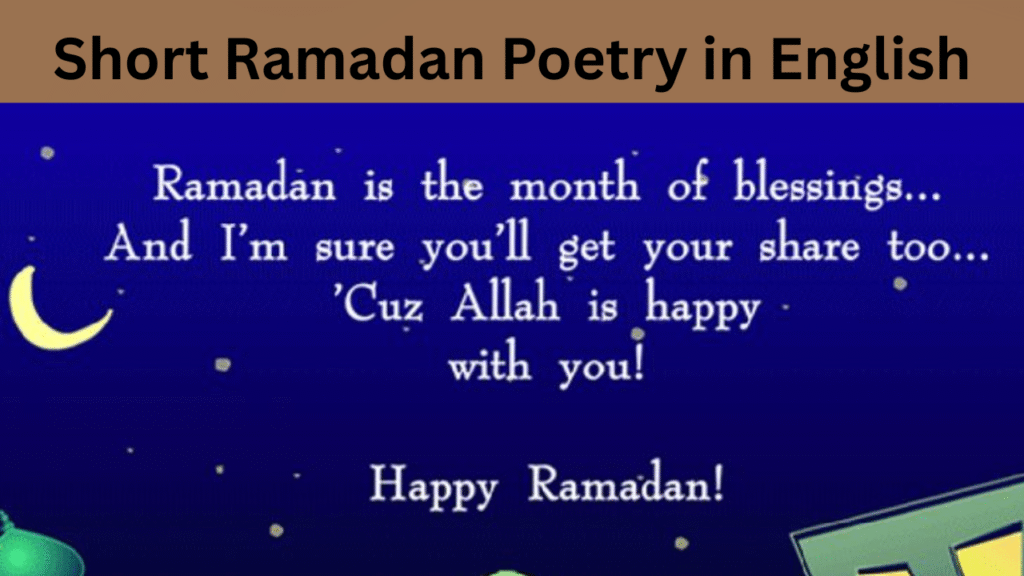
Short Ramadan Poetry in English
Let’s now look at some short Ramadan poetry. These verses are simple, yet full of meaning. They are suitable for both adults and children.
The moon appears, the fast begins,
A time to cleanse all past sins.
We wake at dawn with suhoor near,
And close our day with duas sincere.
Each date we eat brings joy anew,
As hearts grow kind and faith runs true.
Ramadan comes, a gift so grand,
A chance to walk Allah’s command.
Night prayers rise, the silence deep,
Angels listen as we weep.
Quran echoes in our soul,
Fasting makes our spirit whole.
With every prayer, our hearts are light,
Guided by Allah’s holy light.
We seek His mercy night and day,
Ramadan leads the righteous way.
Ramadan’s moon begins to fade,
But peace remains in hearts it made.
Until it comes again next year,
We hold its lessons ever near.
These poems bring out the core beauty of Ramadan poetry. They touch on fasting, faith, prayer, and love for Allah.
Read more: Birthday Poetry in Urdu: A Beautiful Way to Celebrate
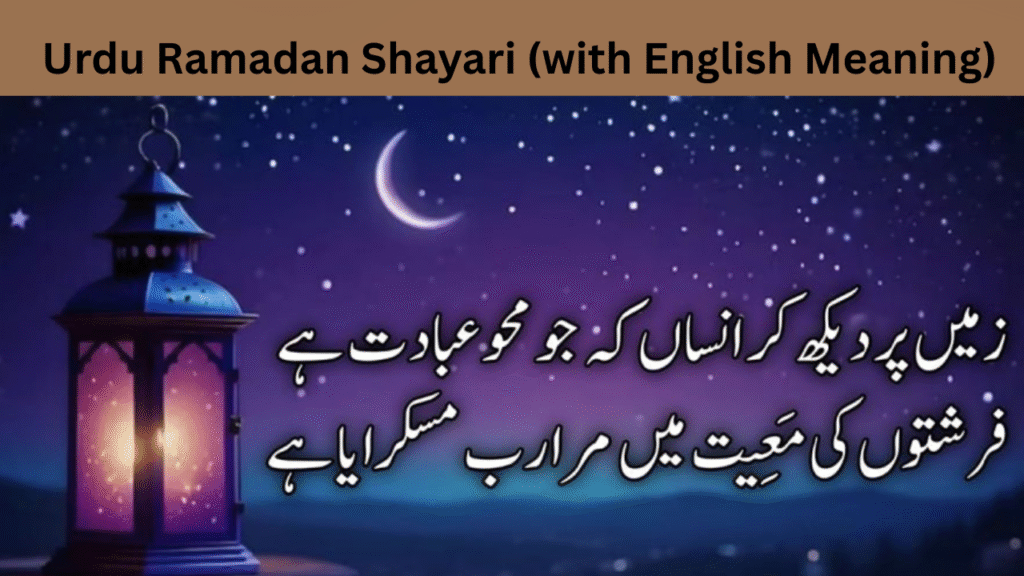
Urdu Ramadan Shayari (with English Meaning)
Ramadan poetry is also popular in Urdu, especially in South Asia. Here are a few beautiful lines with simple English meanings.
روزے کی برکت ہر دل میں اُتری،
دعا کی راتیں، رحمت کی روشنی۔
The blessings of fasting entered every heart,
Nights of prayer, lights of mercy start.
افطار کی دعا میں جو آنسو بہے،
وہی قبولیت کی سیڑھی بنے۔
The tears we shed while breaking fast,
Became the steps to mercy at last.
قرآن کی تلاوت سے دل بہلا،
رحمت کا مہینہ، اللہ کا صلہ۔
Our hearts found peace in every verse,
A month of blessings, Allah’s gift immersed.
سحر کی گھڑیوں میں سکون ملا،
رب کے قریب ہونے کا ہنر ملا۔
In the early hours, we found rest,
A chance to be with Allah, feeling blessed.
Read more: Bewafa Dost Poetry in Urdux: Heartfelt Lines on Broken Friendship
Ramadan Poetry for Kids
Children also enjoy Ramadan poetry, especially in schools or at home. Simple rhymes help them understand the holy month.
Wake up early, it’s time to eat,
Suhoor is calm and very sweet.
All day we fast with happy heart,
Ramadan gives us a brand-new start.
Dates and water, then we pray,
Thanking Allah at the end of day.
Kind words, good deeds, no time to fight,
Ramadan teaches what is right.
These poems are easy, fun, and educational for kids. They teach values like kindness, patience, and love for Allah.
Sharing Ramadan Poetry in Mosques and Homes
During Ramadan, many mosques and families host poetry nights. These are calm gatherings where people share personal poems. Listeners feel uplifted and connected.
These moments bring the community closer. Everyone, from elders to children, takes part. This shows how strong the role of Ramadan poetry is in daily life.
The Healing Power of Ramadan Poetry
Many people use Ramadan poetry for healing. Whether facing sadness, stress, or doubt, poetry can calm the heart.
Tears may fall, but Allah sees,
He brings comfort, answers pleas.
In Ramadan, the heart will mend,
With each prayer, wounds will end.
This kind of verse can uplift the soul and inspire hope. Ramadan is a time to start fresh, and poetry helps us feel that renewal.
Table: Types of Ramadan Poetry by Audience
| Audience | Style of Poetry | Example Feature |
|---|---|---|
| Adults | Deep, emotional, reflective | Talks of faith, hardship, patience |
| Teenagers | Rhyming, modern, spiritual | Shared on Instagram or short reels |
| Children | Fun, simple, rhymed | Teaches values through short verses |
| Religious Leaders | Arabic or traditional style | Often quoted in sermons or lectures |
| Community Events | Group-written or performed poetry | Shared aloud in poetry nights |
This table shows how Ramadan poetry fits every group. Whether you’re a child or an adult, there’s a poem for you.
Longer Ramadan Poems for Deep Reflection
Here are longer poems that explore the deep connection Muslims feel during this month:
O Ramadan, you bring us light,
With days of fast and peaceful night.
In hunger’s test, we find our way,
To speak less harsh, and more to pray.
You slow our steps and calm our mind,
So we may leave the world behind.
And in that space, so calm and wide,
We meet our Lord with love and pride.
No feast can match the date and water,
No joy is more than answered dua’s matter.
Each prayer echoes through the air,
A faithful whisper, soft and fair.
This kind of Ramadan poetry isn’t just written—it’s felt. Each line carries personal meaning. It helps the poet and the reader connect through shared experiences.
Poetry and Night Prayers
One of the most beautiful parts of Ramadan is Taraweeh, the nightly prayers. Many poets write about the calm they feel in those moments. The rhythm of the Quran being recited in Taraweeh often inspires lines like:
With every verse of Taraweeh,
My soul finds rest, my heart breathes.
The night is long, the stars are bright,
In Allah’s house, my soul takes flight.
Ramadan poetry can capture this quiet peace. It shows how prayer is not just an act, but an emotional journey. Poets use words to describe the warmth of the masjid, the silent tears of prayer, and the beauty of being surrounded by worshippers.
Conclusion
Ramadan poetry is more than rhymes. It’s a celebration of faith, love, and the human soul’s journey. It reminds us why we fast, pray, and seek Allah’s mercy.
Whether you’re reading a short couplet or writing your own, let the words lead you closer to peace. Let them reflect your spirit and your love for this sacred month.
In every verse, feel the light of Ramadan.
If you have written a poem this Ramadan, share it. Your words might heal someone’s heart or lift someone’s soul. That’s the power of Ramadan poetry.
